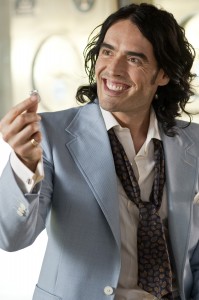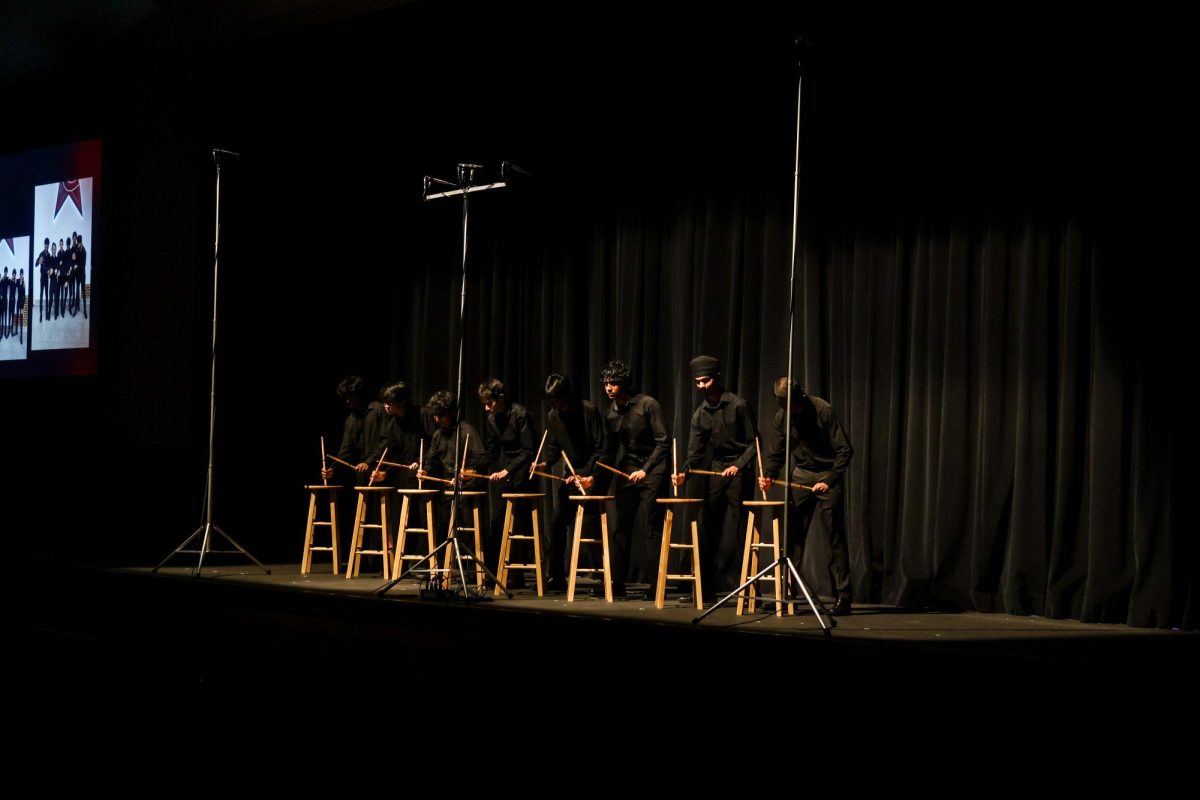Chris Cummins
Staff Writer

Arthur, a remake of the 1981 comedy of the same name, follows the exploits of a drunken billionaire and trust fund baby, Arthur Bach, played with gusto by Russell Brand, and his nanny, Hobson (Helen Mirren), as the former navigates the high life of New York in a drunken haze, and as the latter cleans up what’s left of his parties.
This arrangement seems to have worked out quite well, as a spinning headline of tabloid adventures can attest to, until Arthur is summoned to a visit with his cold and domineering mother Vivienne (Geraldine James), a female titan of industry, who threatens to cut him off from his considerable fortune, $950 million worth, we are told, because his outrageous antics (namely, driving a Batmobile down Wall Street while dressed as Batman) have supposedly lost the company a large amount of money from which they can now no longer make a significantly larger amount of money.
Arthur is then told in order to guarantee his fortune, he must marry Susan, (Jennifer Garner) an oddly sexless yet sexually promiscuous overachiever looking to vault over her lower class background, who can then safeguard the family fortune as a part of the family and leave Arthur to his drinking and partying. The film checks off the three most important indicators of “meanness” (racist, heartless, greedy) in quick succession when portraying the rich, leaving Geraldine James the unenviable task of calling President Obama “coffee colored” while Arthur gapes on in amazement and shock, at which point she then ruthlessly informs Arthur of her decision.
This whole decision would be merely annoying, except that Arthur falls in love with another woman, the charmingly indigent Naomi, (Greta Gerwig) and the rest of the film is devoted to exploring the conflict between money and love that Arthur must choose between.
To Russell Brand’s credit, he plays the character with boundless energy, jumping and sliding in and out of scenes at a breakneck pace, gesturing and waving to prove his point, and generally becoming very funny when given the opportunity, which unfortunately, isn’t often. Whenever the scene demands of him physical comedy, Brand replies in spades, becoming progressively louder and more risible as the scene goes on, but when handed the one liners that made the original so funny, he isn’t nearly as charismatic, his faux intoxication far inferior to that of Dudley Moore, while his delivery at best, is composed of slightly different variations of the mocking voice he uses during his stand up comedy.
The dialogue, to be honest, falls short of the original, and is neither as amusing nor as witty nor as bitingly timed when compared to the snappy dialogue of the original film, and the surprising vibrancy that Moore brought to the role that made the original such a box office hit is, despite Russell Brand’s admirable attempts at harnessing it, missing.
However, Mirren gradually warms up to the role of the henpecked butler, slowly evolving from a one dimensional personality with a thin lipped delivery into a character willing to break into full throated laughs and engage in ribald humor, and by the time of her demise, she has become fully three dimensional, and we feel some sympathy for her and Arthur, and the void created in his life because of her death.
Gerwig is great as Arthur’s chic love interest, and the movie is at its best when Arthur is laughing and simply talking with her during their time on screen, moments that showcase their undeniable chemistry. These types of scenes, unfortunately too few and far between, show Brand at his best and allow the full force of his charisma to pop off the screen and captivate the viewer, as well as showcasing the doe eyed, steely innocence and vitality that made making Gerwig an indie icon.
While not approaching the status of its original, Arthur is an enjoyable movie, if not good, and is carried by the admirable performance of Gerwig, and to a certain degree, the moments where Russell Brand exhibits his kinetic brand of comedy on the big screen.
Grade: C-








